Abstract
OBJECTIVE: To develop and test the reliability of three race/ethnicity-specific forms of the pilot Tucker-Culturally Sensitive Health Care Inventory (T-CUSHCI) for use by patients at community-based primary care centers to evaluate the level of patient-centered cultural sensitivity perceived in the health care that they experience. METHODS: This research involved two studies using independent samples of primary care patients. In study 1, mostly low-income African-American, Hispanic and non-Hispanic white American patients (N=221) rated the importance of specific provider and office staff behaviors and attitudes, and center policies and physical environment characteristics that were earlier identified in previous focus groups as characteristics of patient-centered culturally sensitive healthcare. In study 2, three pilot race/ethnicity-specific T-CUSHCI patient forms were constructed from the items rated as at least important in study 1. Mostly low-income African-American and non-Hispanic white American patients (N=180) provided data to determine the reliability of the T-CUSHCI patient form for their racial/ethnic group. RESULTS: The pilot T-CUSHCI-African-American patient form and the pilot T-CUSHCI-non-Hispanic white American patient form were found to have Cronbach's alpha coefficients ranging from 0.71-0.96 and six-month test-retest and split-half reliabilities ranging from 0.92-0.99. CONCLUSION: The pilot T-CUSHCI patient forms (one each for African Americans, Hispanics and non-Hispanic whites) should be further tested using a national sample of patients. In the interim, these inventory forms can be used as clinical tools to obtain patient feedback for providing "individualized" patient-centered culturally sensitive healthcare.
Full text
PDF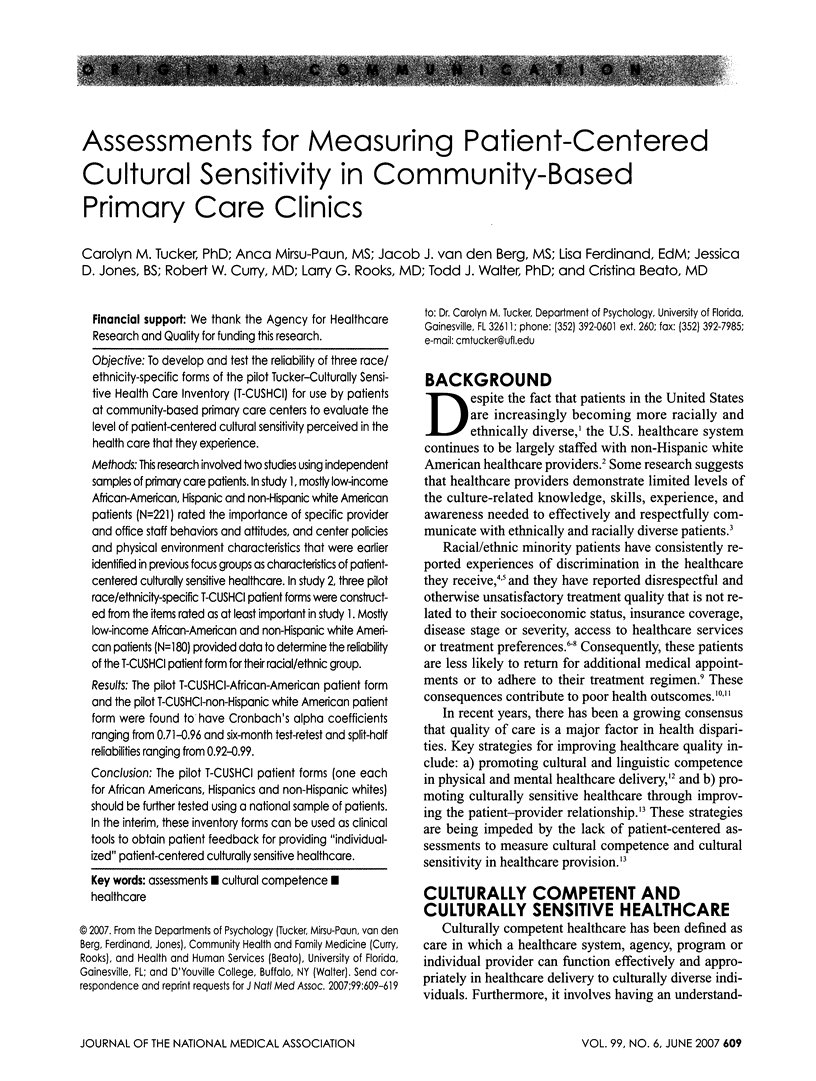
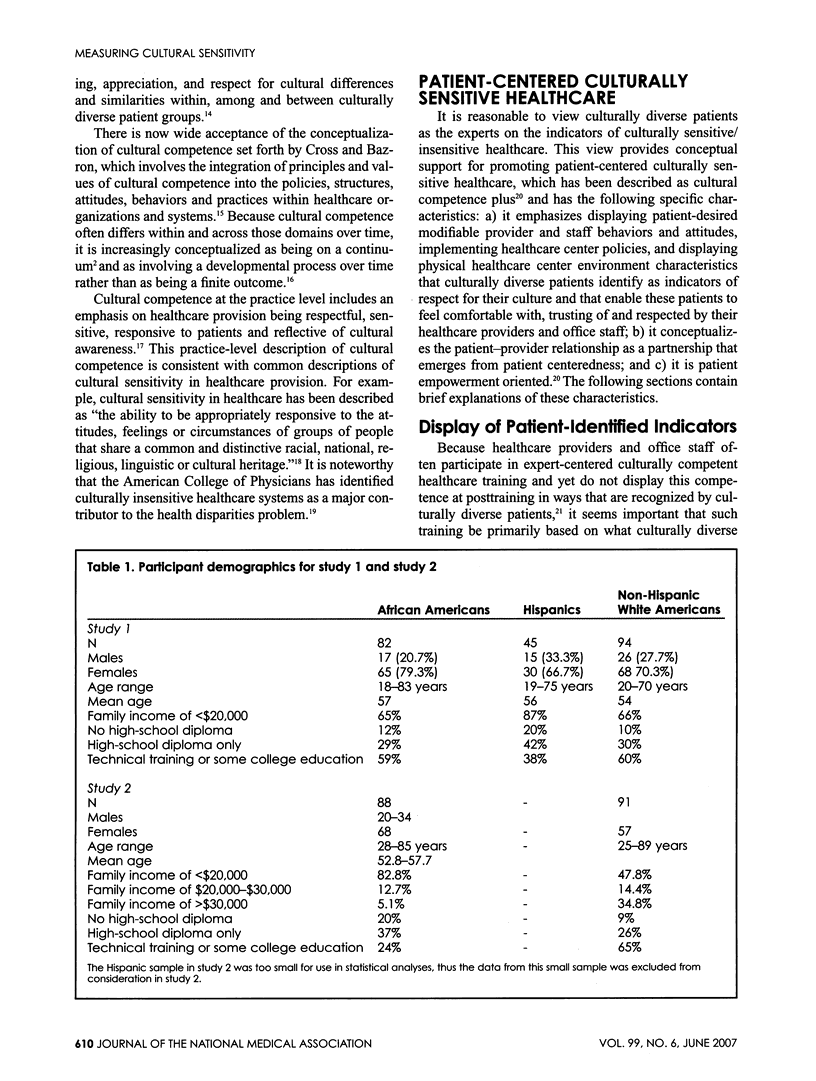
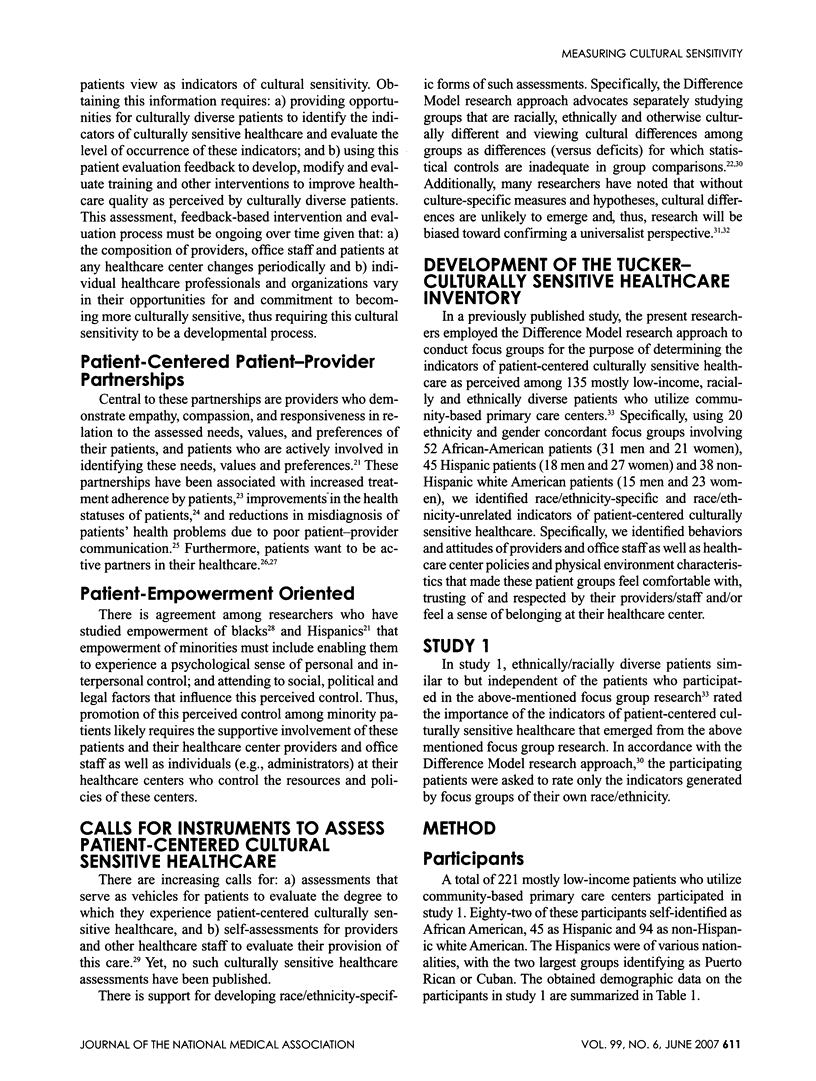
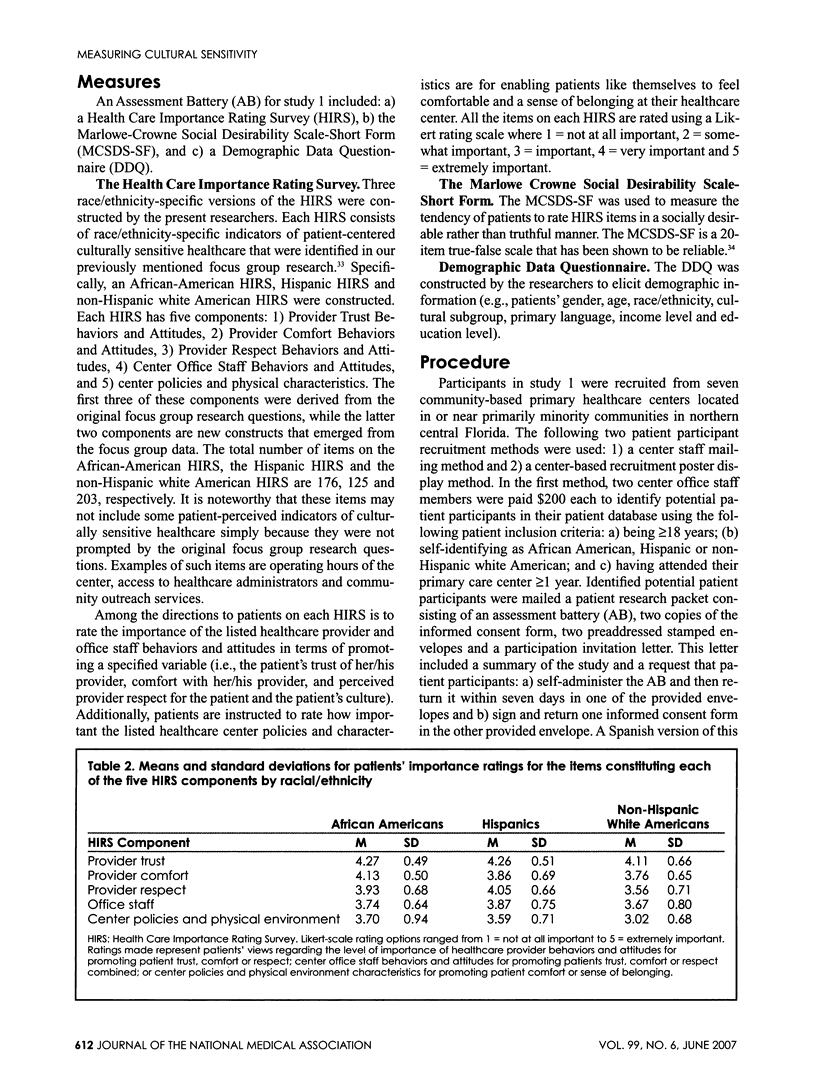
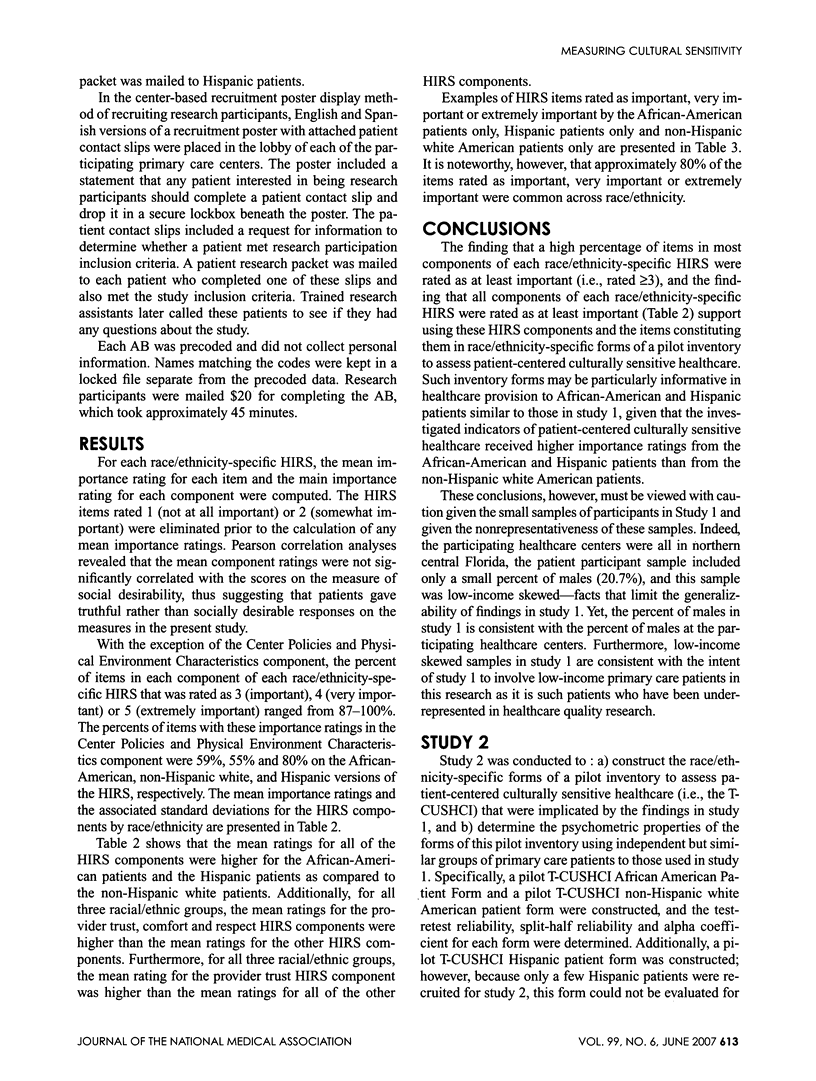
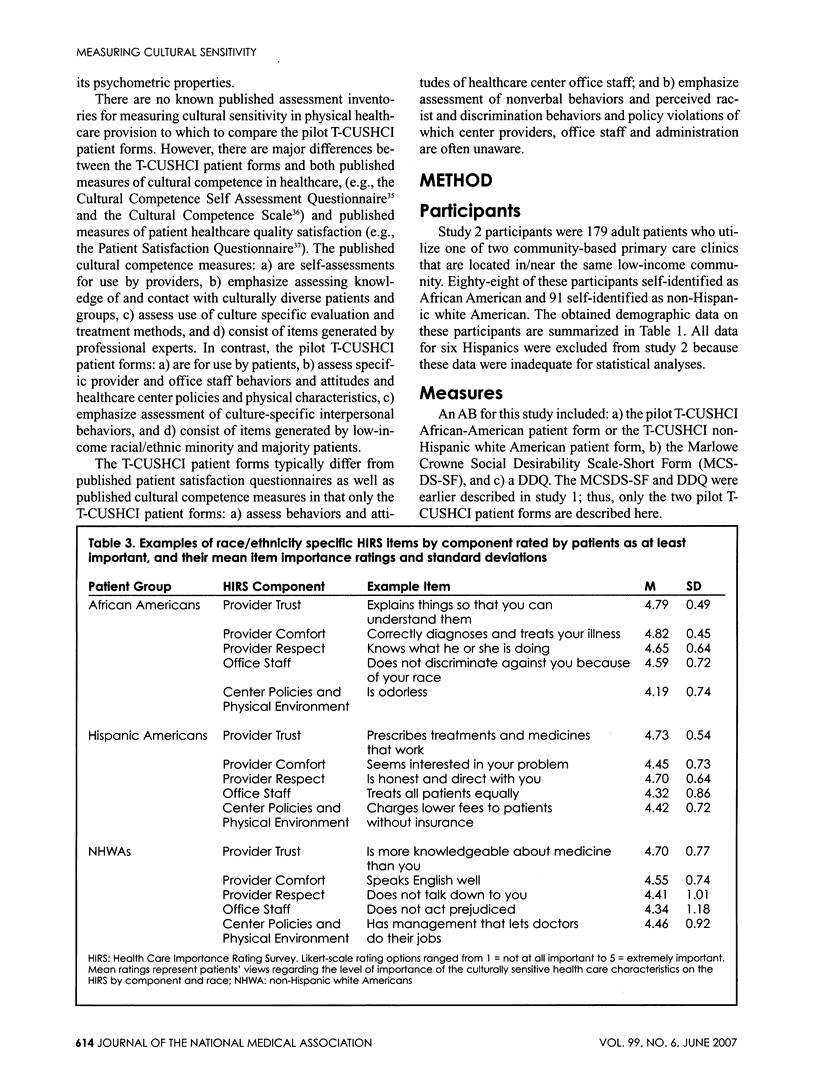
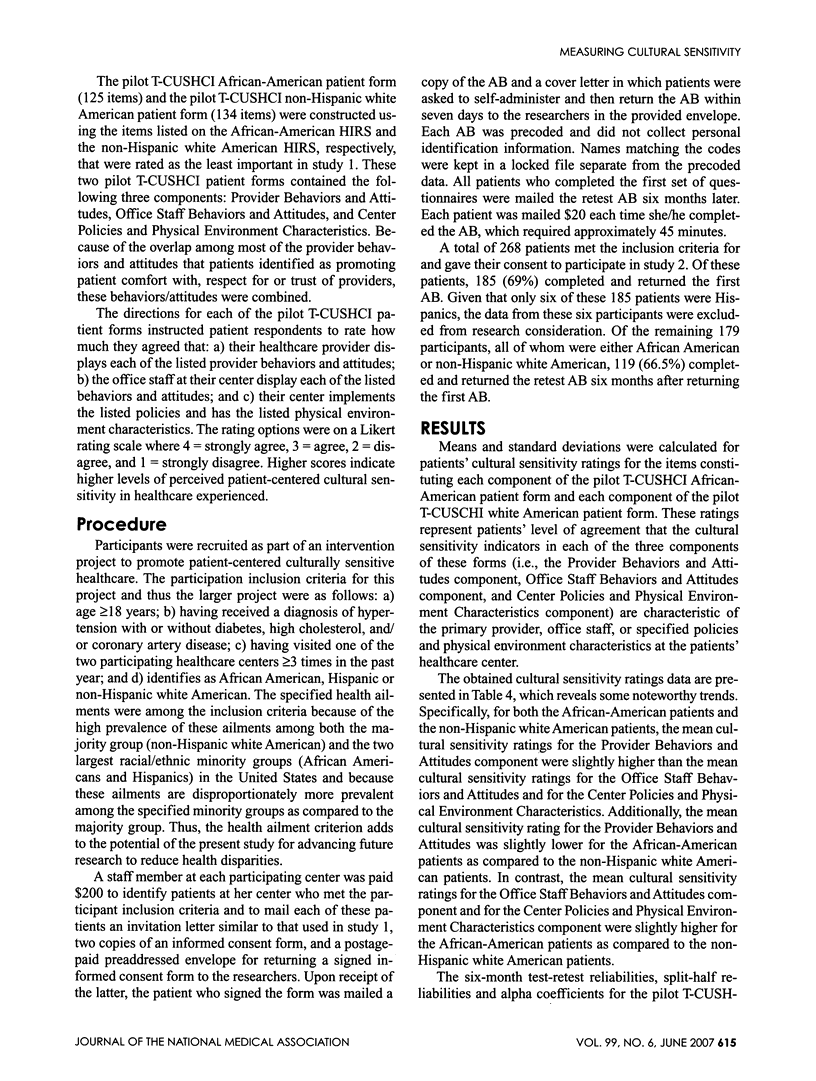
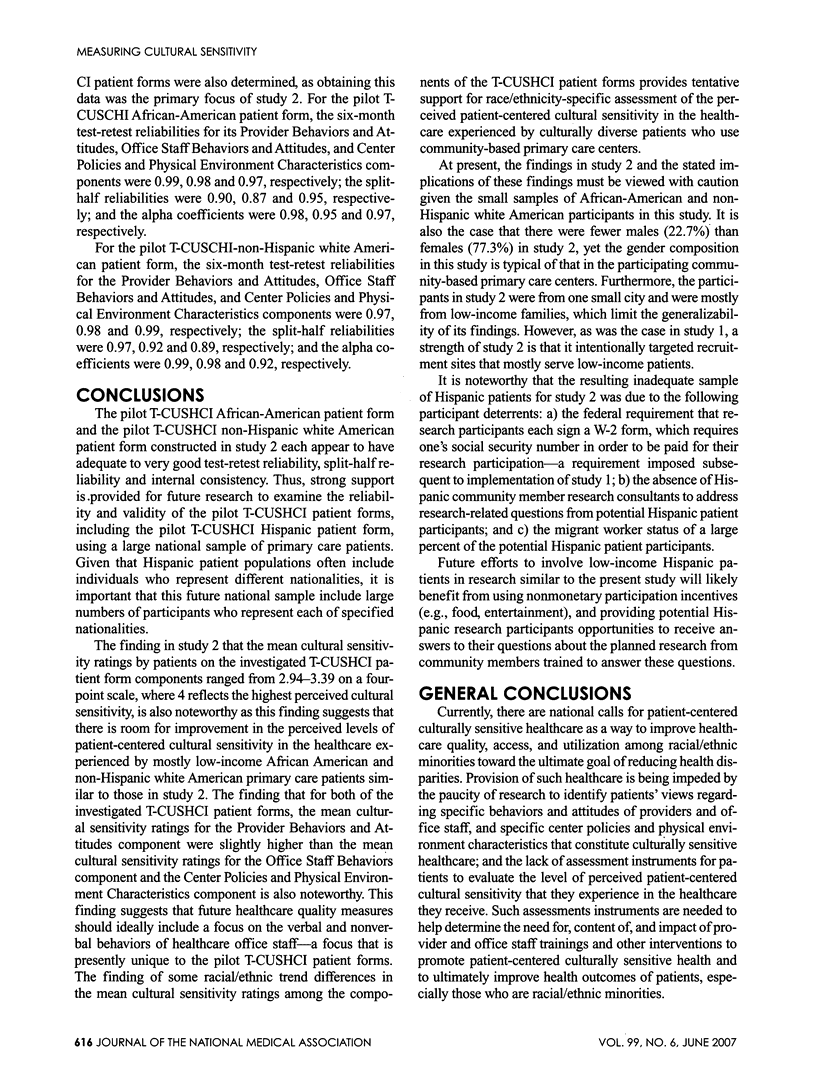
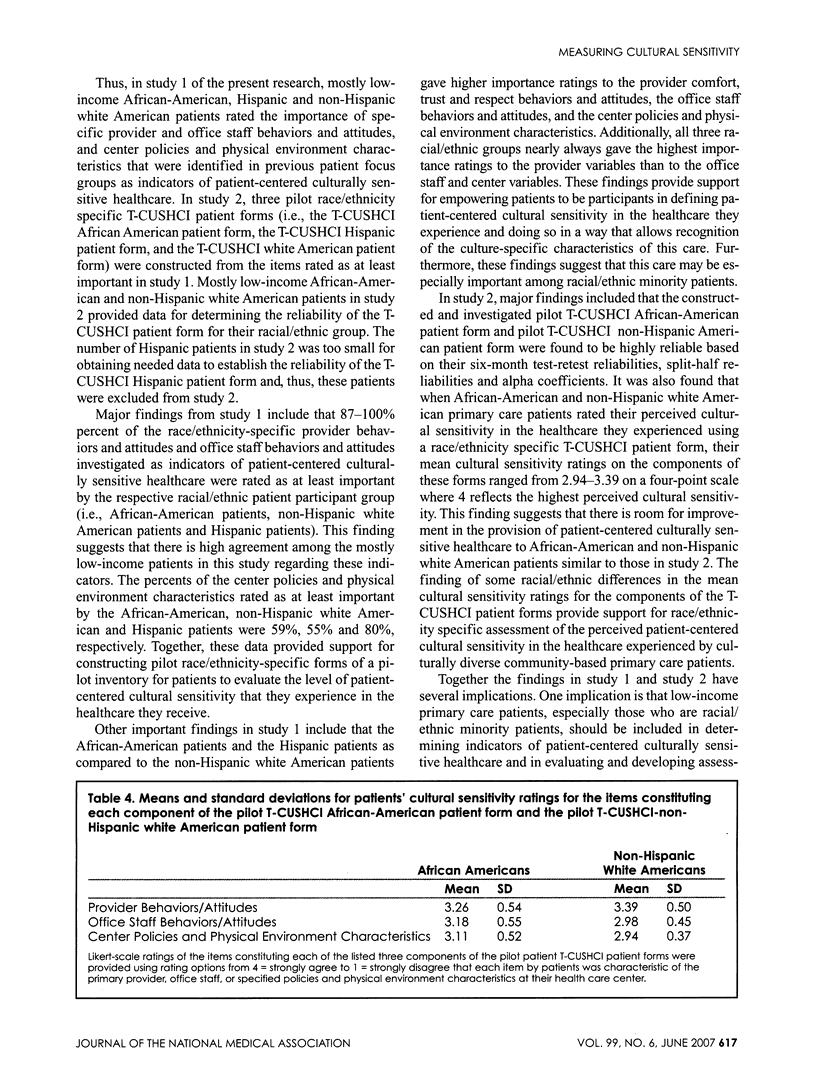
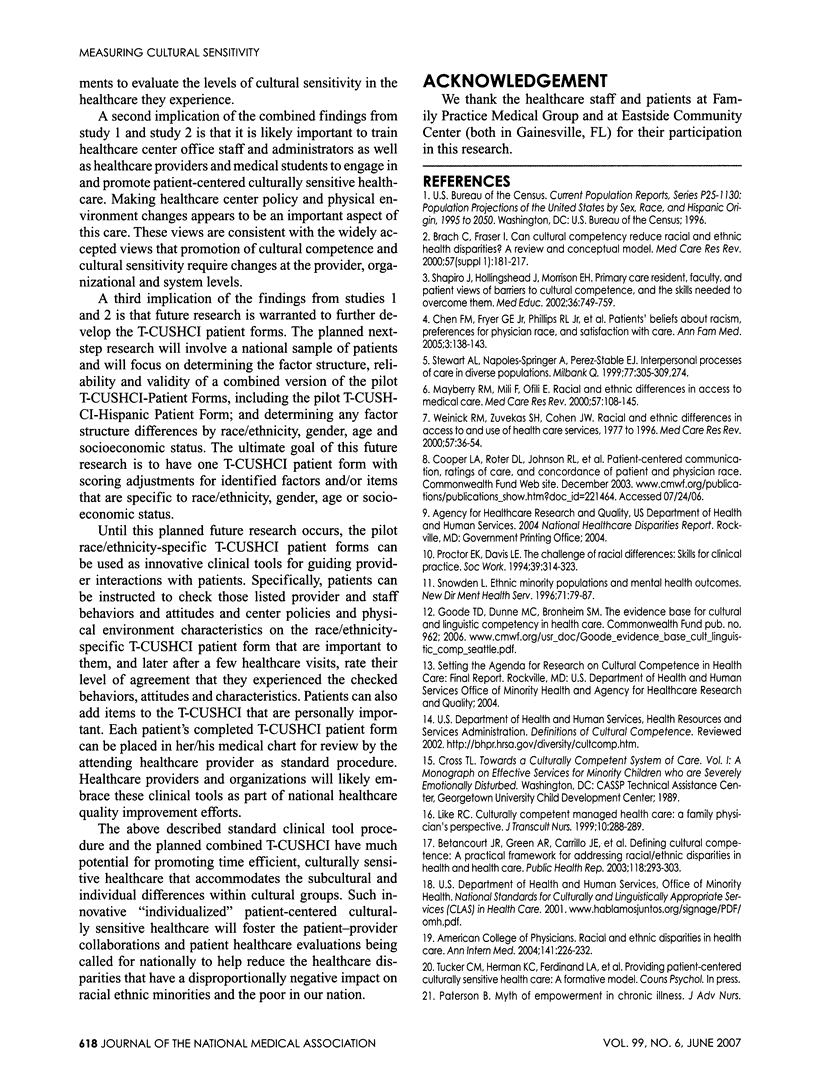
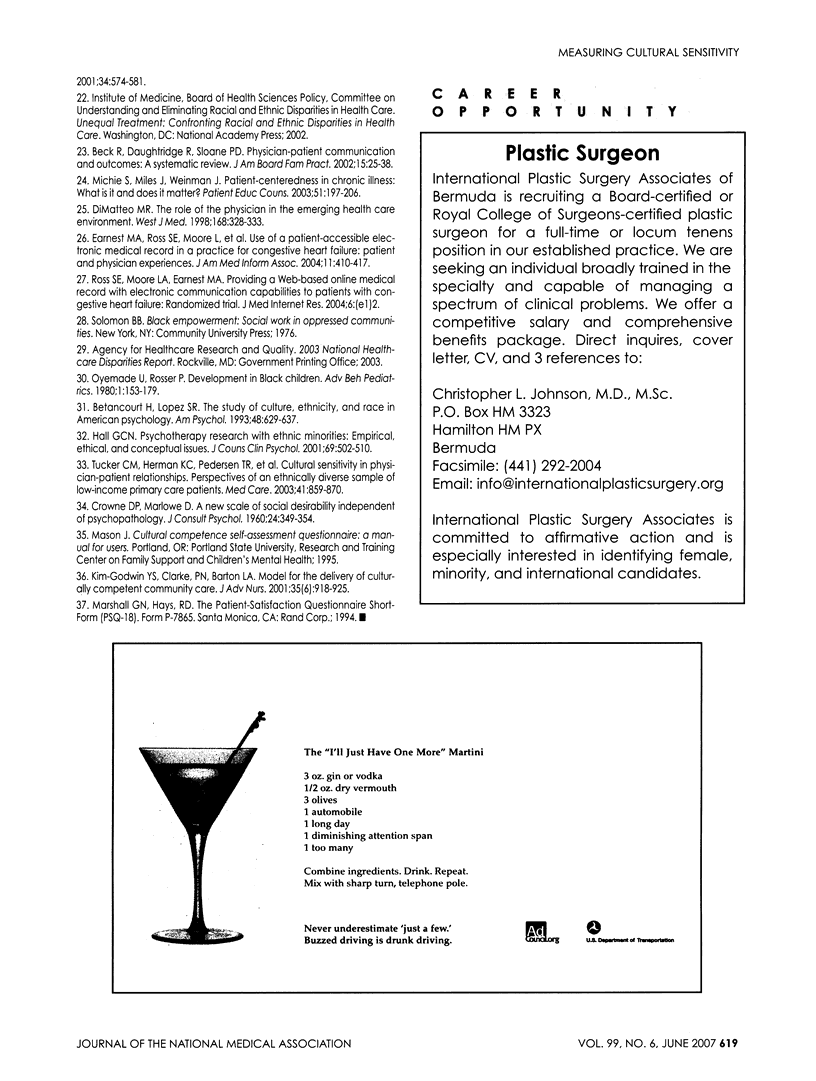
Selected References
These references are in PubMed. This may not be the complete list of references from this article.
- Beck Rainer S., Daughtridge Rebecca, Sloane Philip D. Physician-patient communication in the primary care office: a systematic review. J Am Board Fam Pract. 2002 Jan-Feb;15(1):25–38. [PubMed] [Google Scholar]
- Betancourt Joseph R., Green Alexander R., Carrillo J. Emilio, Ananeh-Firempong Owusu., 2nd Defining cultural competence: a practical framework for addressing racial/ethnic disparities in health and health care. Public Health Rep. 2003 Jul-Aug;118(4):293–302. doi: 10.1016/S0033-3549(04)50253-4. [DOI] [PMC free article] [PubMed] [Google Scholar]
- Brach C., Fraser I. Can cultural competency reduce racial and ethnic health disparities? A review and conceptual model. Med Care Res Rev. 2000;57 (Suppl 1):181–217. doi: 10.1177/1077558700057001S09. [DOI] [PMC free article] [PubMed] [Google Scholar]
- CROWNE D. P., MARLOWE D. A new scale of social desirability independent of psychopathology. J Consult Psychol. 1960 Aug;24:349–354. doi: 10.1037/h0047358. [DOI] [PubMed] [Google Scholar]
- DiMatteo M. R. The role of the physician in the emerging health care environment. West J Med. 1998 May;168(5):328–333. [PMC free article] [PubMed] [Google Scholar]
- Earnest Mark A., Ross Stephen E., Wittevrongel Loretta, Moore Laurie A., Lin Chen-Tan. Use of a patient-accessible electronic medical record in a practice for congestive heart failure: patient and physician experiences. J Am Med Inform Assoc. 2004 Jun 7;11(5):410–417. doi: 10.1197/jamia.M1479. [DOI] [PMC free article] [PubMed] [Google Scholar]
- Groman Rachel, Ginsburg Jack, American College of Physicians Racial and ethnic disparities in health care: a position paper of the American College of Physicians. Ann Intern Med. 2004 Aug 3;141(3):226–232. doi: 10.7326/0003-4819-141-3-200408030-00015. [DOI] [PubMed] [Google Scholar]
- Hall G. C. Psychotherapy research with ethnic minorities: empirical, ethical, and conceptual issues. J Consult Clin Psychol. 2001 Jun;69(3):502–510. doi: 10.1037//0022-006x.69.3.502. [DOI] [PubMed] [Google Scholar]
- Kim-Godwin Y. S., Clarke P. N., Barton L. A model for the delivery of culturally competent community care. J Adv Nurs. 2001 Sep;35(6):918–925. doi: 10.1046/j.1365-2648.2001.01929.x. [DOI] [PubMed] [Google Scholar]
- Like R. C. Culturally competent managed health care: a family physician's perspective. J Transcult Nurs. 1999 Oct;10(4):288–289. doi: 10.1177/104365969901000403. [DOI] [PubMed] [Google Scholar]
- Mayberry R. M., Mili F., Ofili E. Racial and ethnic differences in access to medical care. Med Care Res Rev. 2000;57 (Suppl 1):108–145. doi: 10.1177/1077558700057001S06. [DOI] [PubMed] [Google Scholar]
- Michie Susan, Miles Jane, Weinman John. Patient-centredness in chronic illness: what is it and does it matter? Patient Educ Couns. 2003 Nov;51(3):197–206. doi: 10.1016/s0738-3991(02)00194-5. [DOI] [PubMed] [Google Scholar]
- Proctor E. K., Davis L. E. The challenge of racial difference: skills for clinical practice. Soc Work. 1994 May;39(3):314–323. [PubMed] [Google Scholar]
- Shapiro Johanna, Hollingshead Judy, Morrison Elizabeth H. Primary care resident, faculty, and patient views of barriers to cultural competence, and the skills needed to overcome them. Med Educ. 2002 Aug;36(8):749–759. doi: 10.1046/j.1365-2923.2002.01270.x. [DOI] [PubMed] [Google Scholar]
- Snowden L. R. Ethnic minority populations and mental health outcomes. New Dir Ment Health Serv. 1996 Fall;(71):79–87. doi: 10.1002/yd.23319960309. [DOI] [PubMed] [Google Scholar]
- Stewart A. L., Nápoles-Springer A., Pérez-Stable E. J. Interpersonal processes of care in diverse populations. Milbank Q. 1999;77(3):305-39, 274. doi: 10.1111/1468-0009.00138. [DOI] [PMC free article] [PubMed] [Google Scholar]
- Tucker Carolyn M., Herman Keith C., Pedersen Tyler R., Higley Brian, Montrichard May, Ivery Phyllis. Cultural sensitivity in physician-patient relationships: perspectives of an ethnically diverse sample of low-income primary care patients. Med Care. 2003 Jul;41(7):859–870. doi: 10.1097/00005650-200307000-00010. [DOI] [PubMed] [Google Scholar]
- Weinick R. M., Zuvekas S. H., Cohen J. W. Racial and ethnic differences in access to and use of health care services, 1977 to 1996. Med Care Res Rev. 2000;57 (Suppl 1):36–54. doi: 10.1177/1077558700057001S03. [DOI] [PubMed] [Google Scholar]


